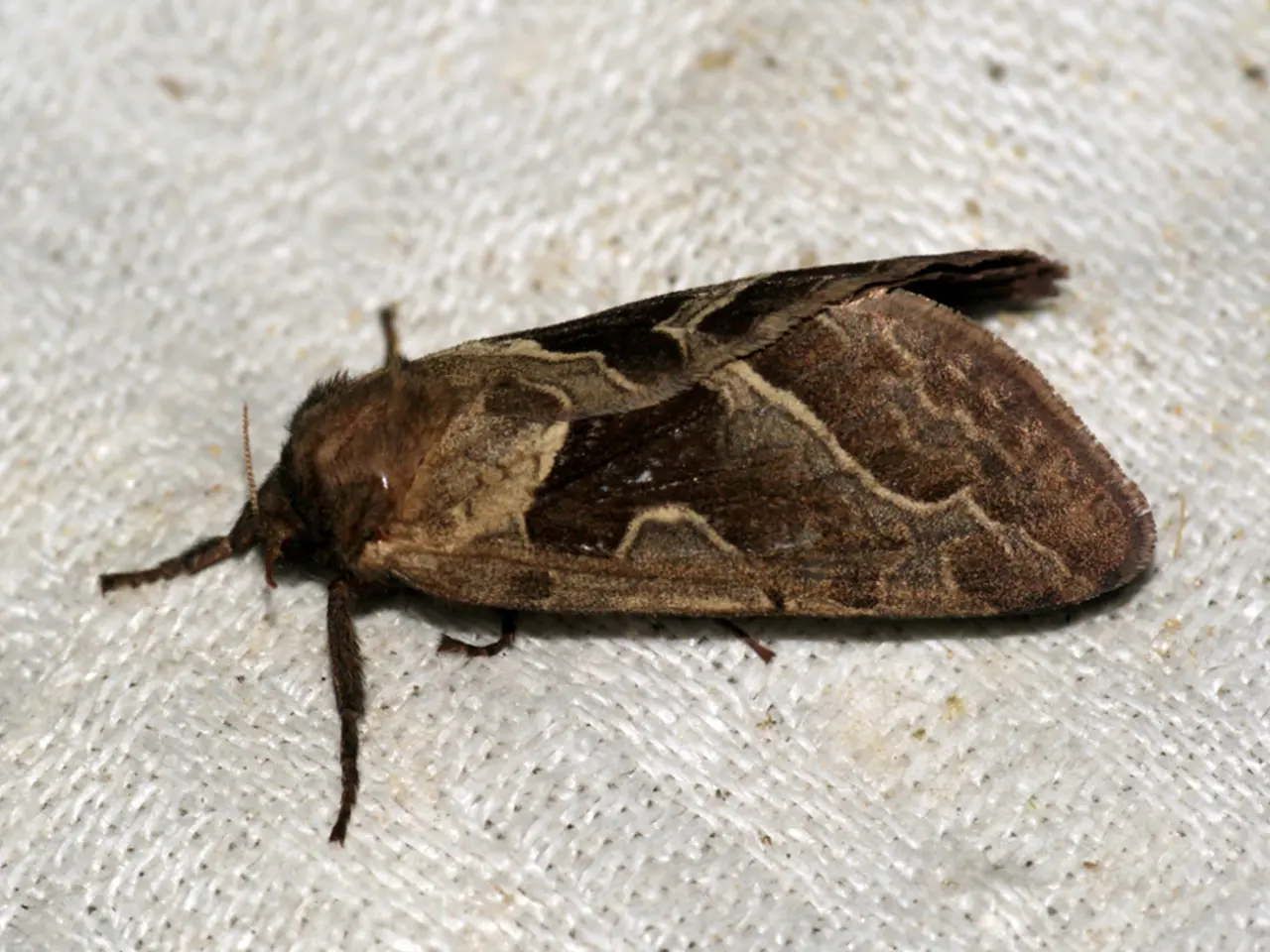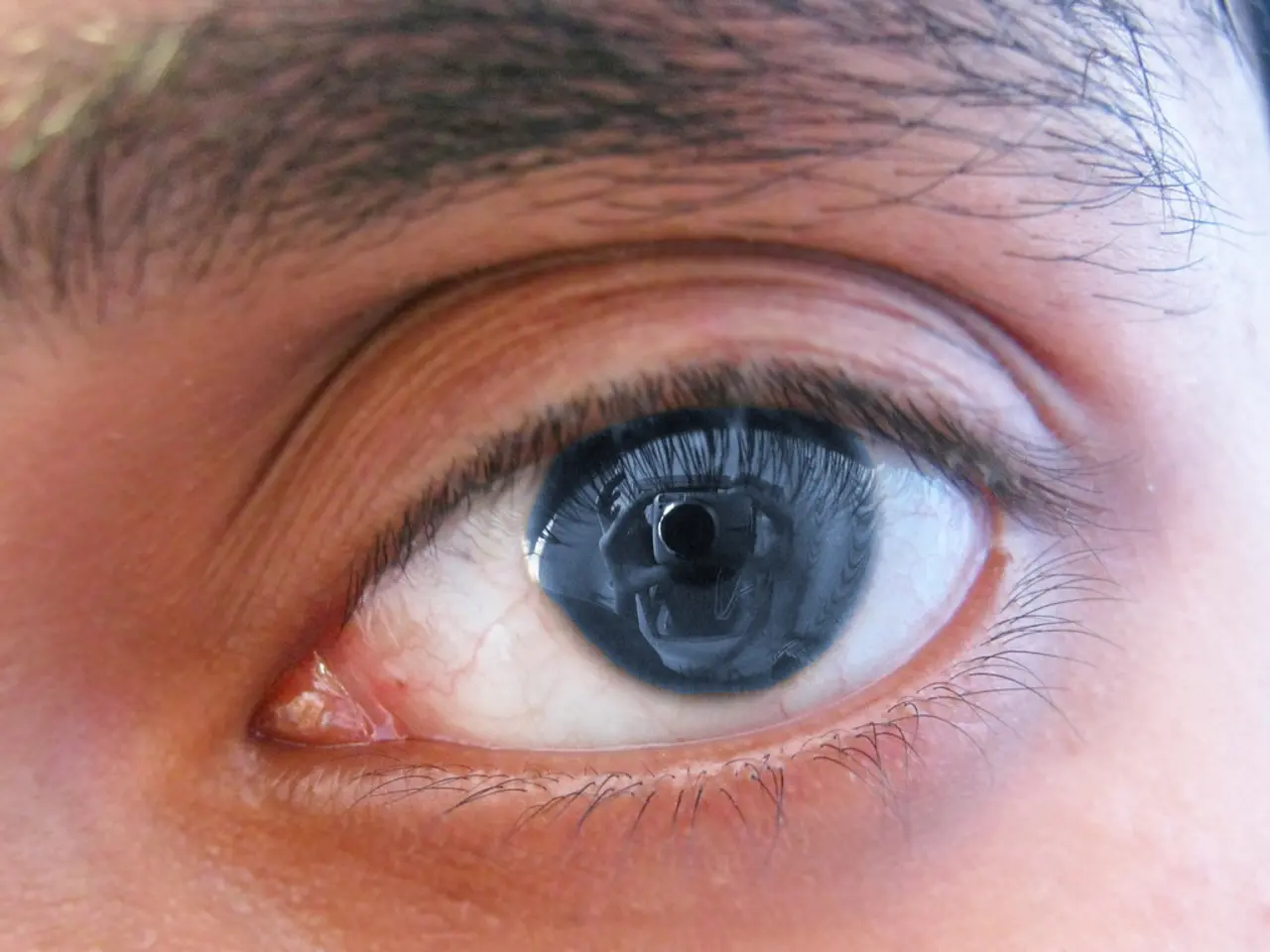Images depicting skin lesions on the head: root causes and further details
From time to time, many individuals may experience scaly or flaky skin on their scalp. This condition can be caused by a variety of factors, each requiring different management strategies. Here, we delve into some common causes and treatments for this issue.
## Common Causes
1. **Psoriasis**: This chronic condition is characterized by thick, scaly patches on the scalp, often accompanied by itching and discomfort. Psoriasis is not contagious and can be triggered by genetic factors, stress, or certain medications[1][4].
2. **Dandruff**: Caused by an overgrowth of yeast on the scalp, dandruff is associated with oily scalp conditions and can lead to flaky skin[3][4].
3. **Dry Scalp**: Moisture loss can result in a flaky scalp, similar to dry skin elsewhere on the body. This condition can be exacerbated by harsh hair products, climate changes, and dehydration[3].
4. **Allergic Reactions and Sensitive Scalp**: Reactions to hair products or a sensitive scalp can lead to itchiness and flaking due to irritation or allergic contact dermatitis[2].
## Treatments and Management
### For Psoriasis - **Medication**: Topical treatments like steroid creams or vitamin D creams are often prescribed by doctors[1]. - **Lifestyle Changes**: Avoiding triggers such as smoking and certain medications can help manage symptoms[1].
### For Dandruff - **Anti-dandruff Shampoos**: Use shampoos containing ingredients like zinc pyrithione, ketoconazole, or salicylic acid to reduce fungal overgrowth[3]. - **Hygiene**: Regular washing with gentle shampoos can help control dandruff[3].
### For Dry Scalp - **Hydrating Products**: Use moisturizing shampoos and conditioners to restore moisture to the scalp[3]. - **Avoid Heat**: Minimize the use of heat styling tools to prevent further drying[3].
### For Allergic Reactions and Sensitive Scalp - **Product Changes**: Remove irritating products from your hair care routine and switch to gentle alternatives[2]. - **Consult a Dermatologist**: If symptoms persist, seek professional advice for personalized treatment[3].
It is essential to remember that a minor injury to the scalp, such as a cut or scrape, or intense scratching could cause breaks in the skin and sores that may lead to scabs. Cysts that develop around hair follicles, trichilemmal or pilar cysts, may feel sore or tender. If infected cysts burst, the infection may spread to other parts of the scalp.
Head lice may cause intense itching, and scratching the scalp could cause sores and scabs that may require antibiotic treatment. Seborrheic dermatitis is a common condition that causes itchy, flaky skin and may result in skin scales, occurring in areas with many sebaceous glands. Contact dermatitis is an eczema that causes dry, scaly, blistered skin, often due to a shampoo, hair product, or soap touching the scalp.
Infected scalp injuries, head lice infestations, and conditions like psoriasis, folliculitis, seborrheic dermatitis, impetigo, and cysts may require medical attention. Treatment for scabs on a person's scalp will depend on the cause, but may include avoiding certain irritants, antibiotics, using medicated shampoos or corticosteroids, and avoiding touching or scratching the scalp excessively.
It is always advisable to consult a doctor if scaly or flaky skin on the scalp persists, worsens over time, is accompanied by pain, itching, or signs of infection, or appears on a young child's head.
[1] National Psoriasis Foundation. (n.d.). Psoriasis: Overview. Retrieved from https://www.psoriasis.org/about-psoriasis/overview [2] American Academy of Dermatology. (n.d.). Allergic Contact Dermatitis. Retrieved from https://www.aad.org/public/diseases/contagious-skin-diseases/allergic-contact-dermatitis [3] American Academy of Dermatology. (n.d.). Dandruff. Retrieved from https://www.aad.org/public/diseases/hair-and-scalp-care/dandruff [4] Mayo Clinic. (2021, February 17). Psoriasis. Retrieved from https://www.mayoclinic.org/diseases-conditions/psoriasis/symptoms-causes/syc-20351795
- Aq individuals suffering from psoriasis might find relief with scalp treatments such as steroid or vitamin D creams, prescribed by medical professionals to manage symptoms.
- GLP products could be a potential culprit behind allergic reactions and sensitive scalp conditions, leading to itchiness and flaking due to irritation or contact dermatitis.
- HST and gentle shampoos can help control dandruff, which is often caused by an overgrowth of yeast on the scalp.
- Eczema-related conditions, like contact dermatitis, can cause dry, scaly, blistered skin on the scalp, often due to irritants in hair care products, shampoos, or soaps.
- Skin-care solutions, like moisturizing shampoos and conditioners, can help alleviate dry scalp conditions by restoring moisture to the scalp.
- Certain predictive factors, such as genetic predisposition, stress, or certain medications, can trigger psoriasis, a condition characterized by thick, scaly patches on the scalp.
- Haircare products containing ingredients like zinc pyrithione, ketoconazole, or salicylic acid can help reduce fungal overgrowth associated with dandruff.
- CBD-infused products may offer potential benefits for managing inflammatory skin conditions like psoriasis or eczema, contributing to overall health-and-wellness and skin-care practices.




